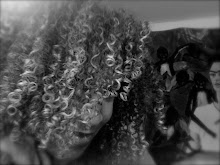This is in brief response to a great blog post over at A Historian Goes to the Movies*:
"The film never contemplates the possibility that this devotion might be a calculated strategy of self-interest, in which a lower status person chooses to serve a more powerful person as way of getting employment, shelter, legal protection, or whatever else might be needed. Instead, Africans just seem to love their benevolent colonial masters. "
One of the things I love most about film and watching movies is being taken through the looking glass and into someone else's experience. And I have to say that every time I see Out of Africa I am lost in the love story- Redford is the Best in the biz at playing the ever-alluring but emotionally unavailable man, then Meryl just kills me and I'm a crying mess. "He was not ours, he was not mine."
However, despite my love for this film, I was so happy to come upon your post because it highlights one of the crazy experiences one has when the things you love do not love you back! As a Black, female, womanist academic I study literature and film as storytelling modes that both work for and against expectations rooted in our history of violence, oppression, and appropriation. But even before entering graduate school I was aware of the conflict of what Munoz calls disidentifications*, wherein one must negotiate the ways that something one is drawn to can also be hostile to who one is as a socialized person.
All that is to say, I have these moments all the time when in the midst of pleasantly enjoying a film something happens on screen and I suddenly realize that the movie has no space for my spectatorship. All the silence surrounding the African peoples in the film is a painful slap, a reminder of the silencing constantly being perpetrated against Black voices. And all set amidst the most beautiful of scenery.
Your comment I have quoted at the start is something I of course assumed about the 'African'/Masai/etc characters in the film because people in oppressed circumstances must work with the limited demonstrative/agential resources available to survive. Who in this day and age still believes that these African peoples wanted to work in silence like human Rumbas and be moved about like so many chess pieces by Karen Blixen on her 'Farm, Toil, Love' journey of self-discovery?? But so many do not see these misrepresentations or actually know history well enough to understand, and so I thank you for your post! It is yet another reminder why our work as cultural critics is so important.
Jose Esteban Munoz's book goes into more glorious detail about this phenomenon, and it is called "Disidentifications: Queers of Color and the Performance of Politics"
*A Historian Goes to the Movies
Subscribe to:
Posts (Atom)

